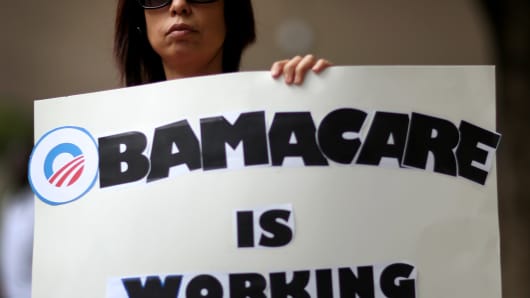Aetna's pullback from the Affordable Care Act's (ACA) Insurance Exchanges is another bad omen in a growing list.
Throughout the controversial history of Obamacare, Aetna has been a stalwart continuing to voice confidence in the future of the program.
That confidence took an abrupt and sudden turn this week when it cited unsustainable losses as the reason it was cutting back from 15 states to only four. Aetna reported Obamacare losses of $200 million in just the second quarter and more than $430 million since January of 2014. They expect full-year exchange losses of $320 million in 2016 alone.
Most disconcerting was Aetna's report that their losses have gotten worse recently.
The architects of the new health law built into it a three-year program to help cushion early insurance company losses as those previously unable to gain coverage were expected to flood into the program at the start. By year three, they assumed, the risk pool, and the prices the participating insurance companies charged, would begin to stabilize.
But that hasn't happened. With each successive annual open enrollment the tendency of the sickest to buy coverage while the healthiest hung back has only repeated itself.
2017 will be year four for Obamacare and the picture is not pretty and getting worse.
The fundamental problem with Obamacare is that the health insurance plans carriers are selling are so unattractive—with their still high premiums even after subsidies, ever larger deductibles and narrower provider networks—that only about 40 percent of the exchange eligible population has signed up. The longstanding insurance industry rule is that 75 percent of the eligible must sign-up to get the enough healthy people in the pool to pay for the sick.


